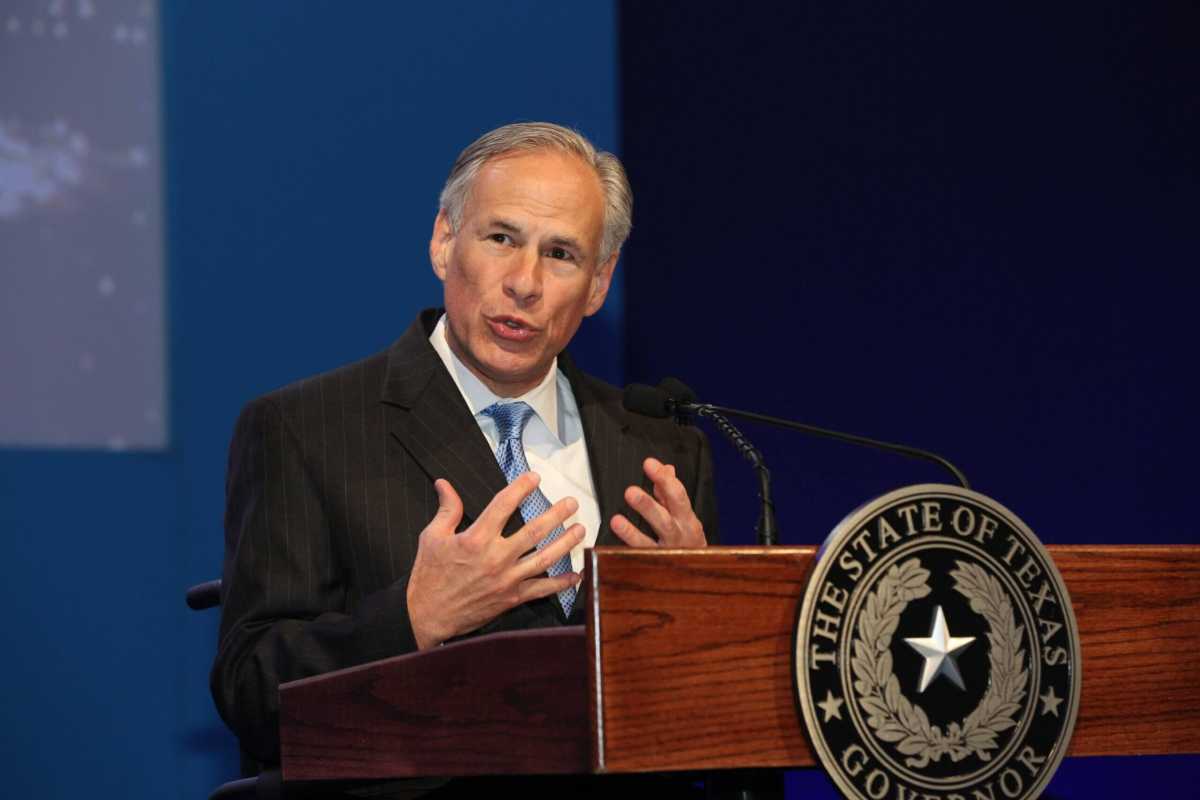A unanimous panel of the Texas 3rd District Court of Appeals in Austin has affirmed in major part temporary injunctions issued by Travis County District Judge Amy Clark Meachum blocking the state’s Department of Family and Protective services from enforcing a directive by Governor Gregg Abbott mandating that the department conduct child abuse investigations of parents who are providing gender-affirming health care to their minor children and doctors providing such services. Abbott’s directive also potentially involving law enforcement since Attorney General Ken Paxton issued an opinion letter stating that performing gender-affirming medical care is “child abuse,” a crime.
The temporary injunctions were issued by Judge Meachum in three cases, later consolidated into two cases, Abbott v. Doe and Muth v. Voe. The Court of Appeals opinions were issued on March 29.
In one case, Governor Abbott is sued as well as Commissioner Stephanie Muth and the Department. In the other cases, Commissioner Muth and the Department are the defendants. The court found that Governor Abbott should not be included as a defendant because he has no enforcement responsibility or powers with regard to the investigations set in motion and the goal of the lawsuits is block enforcement of this policy. Otherwise the court upheld Judge Meachum’s orders in both cases, including the extension in one of the cases beyond the parties to statewide effect, and the extension to members of Texas PFLAG who are affected but are not individual plaintiffs.
The controversy was sparked by Attorney General Ken Paxton’s issuance of a formal opinion on February 18, 2022, “concluding” that gender-affirming care involving puberty blockers, cross-sex hormones or surgical alteration are “child abuse” under the Texas Penal Code. Governor Abbott immediately issued a directive to the Department (DFPS) to implement Paxton’s opinion. Soon DFPS launched investigations of several parents upon receiving reports that they were providing gender-affirming care for their children.
Jane Doe, the lead plaintiff in Abbott v. Doe, is the mother of a transgender teen who has been diagnosed with gender dysphoria and is receiving gender-affirming care. She is a social worker employed by DFPS. Upon instigation of an investigation of her and her family, she was suspended from her employment and threatened with suspension of her professional license as a “child abuser” and possible referral for criminal prosecution. She so clearly has standing to sue that the fatuous attempts by the defendants to deny standing and ripeness are bizarre, considering that within days there were DFPS investigators at her door. According to evidence produced in the hearing before Judge Meachum, there were at least seven such investigations underway when the judge issued her temporary order. Several of the parents under investigation are plaintiffs in the Muth v. Voe lawsuit. PFLAG (Parents and Friends of Lesbian and Gay Men) sues in Muth v. Voe as an association whose members include individuals affected by the Governor’s Directive and by subsequent actions by DFPS, in addition to individual plaintiffs whose cases were combined with PFLAG’s case for purposes of judicial economy.
The procedural twists and turns are sufficiently convoluted to skip over in this account. Suffice it to say that Judge Meachum, after an evidentiary hearing, issued a temporary injunction to remain in effect until a final decision on the merits, which the state appealed to the Court of Appeals. Filing the appeal suspended the temporary injunction, but the Court of Appeals promptly placed it back into effect while considering the state’s appeal. In its March 29 rulings, the Court of Appeals affirmed Judge Meachum’s order in all relevant particulars as against the Commissioner of DFPS and the department itself.
In both cases, the immediate basis for the temporary injunction was the Texas Administrative Procedure Act (APA). The courts determined that the department could not effectively change the status quo regarding the meaning of “child abuse” in this context without going through the rule-making requirements of that statute. As a result, the new “rule” regarding gender-affirming care is likely invalid, and the temporary injunction is justified because of the impact of the investigations and collateral harms flowing from them on the plaintiffs.
The state argued in Abbott v. Doe that if there were a temporary injunction, it should be limited in scope to protecting the plaintiffs, pausing the investigation of the Doe family and the suspension of Jane Doe from her job. The Court of Appeals found no abuse of discretion on the part of Judge Meachum in extending the order to block all such investigations by DFPS while the case is pending. The Court of Appeals found that this is the sort of case where it is within the discretion of the trial judge to order pausing all implementation of the Governor’s Directive and the subsequent DFPS actions statewide. The court found that the Texas Rule of Appellate Procedure under which the Supreme Court had narrowed the scope of Judge Meachum’s original ex parte temporary order to the plaintiffs did not apply in this temporary injunction proceeding, which involved a hearing on the facts in which both sides were represented by counsel and factual and opinion testimony was received.
Justice Edward Smith wrote for the panel in Abbott v. Doe that “the State Appellants have not shown that the second, third, and fourth provisions of the temporary injunction are so arbitrary as to exceed the reasonable bounds of discretion.” The court noted first that “statewide injunctive relief is appropriate because the Doe family is proceeding in this case under pseudonyms, which the court permitted to protect their privacy interests,” and privacy is particularly significant when a minor is involved. Further, “if the trial court limited the injunction only to the Appellees, similarly situated non-plaintiffs would likely file subsequent lawsuits based on the order, which would create needless and repetitive litigation. Appellees have alleged and presented evidence that the Department Statement is generally applicable and impacts the fundamental constitutional rights of all persons similarly situated to the Doe Family and Dr. Mooney” (their physician). “They also presented evidence demonstrating that the Department has implemented the allegedly invalid rule declaring that the provision of gender-affirming medical care constitutes ‘child abuse’ and is actively conducting investigations statewide based upon the rule.” The court also invoked state court precedents for state-wide injunctions in appropriate cases.
The court also upheld enjoining “prosecuting or referring for prosecution” reports of gender-affirming care as “child abuse” and imposing reporting requirements on persons who become aware that parents and doctors are providing gender-affirming care for minors. The court had little difficulty in determining that irreparable injury was likely as a result of the state’s policy.
Thus, the court affirmed all of Judge Meachum’s order except as to the governor.
The state argued in all these cases that the plaintiffs lacked standing to bring the cases because they had not suffered any real injuries, but both Justice Edwards in Abbott v. Doe and Justice Gisela Triana, writing for the panel in Muth v. Voe, accepted arguments by the plaintiffs that the impact of the department adopting this new rule went beyond investigations, causing considerable panic in families with transgender children. Indeed, there was evidence that one transgender minor attempted suicide upon learning of the new rule, fearing their treatment would be cut off. Some families began making plans to move out of Texas in order to be able to support their transgender children with the treatment recommended by their health care providers. A clearer case for standing to challenge the rule would be hard to find.
Both panels endorsed Judge Meachum’s conclusion that the parents were likely to prevail on their claim that the challenged rule violated the due process parental rights of the parents and the equal protection rights of the transgender minors, a necessary prerequisite to ordering injunctive relief.
Of course, Attorney General Paxton is likely to appeal the temporary injunction to the Texas Supreme Court, an all-Republican elected bench that is extremely conservative.
Plaintiffs are represented by a large team of counsel from the ACLU of Texas, the national ACLU and Lambda Legal, assisted by local Texas attorneys.





































